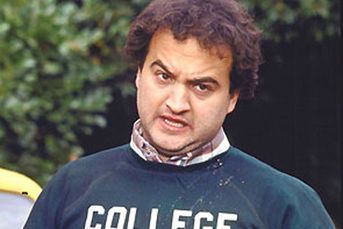Advisers choosier about conferences
As the fall conference season rolls into high gear, many financial advisers are rethinking the value of attending adviser-oriented events
As the fall conference season rolls into high gear, many financial advisers are rethinking the value of attending adviser-oriented events.
“I enjoy the networking, but it’s expensive to go to conferences both in money and in the time you’re not in the office,” said Cathy Curtis, principal of Curtis Financial Planning in Oakland, Calif. “There is not a lot of new content, and you can get so much information on the Internet.”
The shift in thinking is reflected in conference attendance, which has rebounded from the 2008 and 2009 lows at the often free events sponsored by the big custodians but has trailed at some association-sponsored events. To cope, those groups are cutting back on events and packing more punch into the remaining ones.
Next year, for example, the 2,400-member National Association of Personal Financial Advisors will fold the content from its annual practice management conference — being held this week in Brooklyn, N.Y. — into other NAPFA conferences.
“It’s a sign of the economy and competing events,” said Robin Gemeinhardt, the association’s manager of education and conferences.
“Rather than going to two NAPFA conferences or allowing each of your staff to go to each one, advisers are more conservative in their thinking, maybe sending one staff member, versus two,” she said. “That is just part of our reality.”
NO ‘BIG, GLITZY NAMES’
In order to continue to attract attendees, the Investment Management Consultants Association has increased its speaker budget by about 80% over the past three years, though Ian MacKenzie, IMCA’s deputy executive director of operations, said that the group still “doesn’t play in the sandbox of big, glitzy names.”
At the same time, the association has cut the number of conferences it sponsors, combining its fall and spring conferences into one annual event and eliminating its conference in Canada.
Overall, its attendance has been roughly flat over the last few years, with about the same number of advisers attending fewer events, said Mr. MacKenzie, who noted that IMCA’s 2011 annual conference in May set a conference attendance record of 1,900.
Cost is a factor for some advisers.
Registration fees for association conferences range from about $500 to $1,000.
Custodians, which view the conferences as a mix of education and business development, tend to be more relaxed about fees. Fidelity Investments and TD Ameritrade Inc. don’t charge a registration fee to invited advisers, while Charles Schwab & Co. Inc. charges $1,050 for its annual Impact conference, though advisers said the fee is often waived for large clients and attractive prospects.
When adviser Mark Ivcevich of QP Consulting in Takoma Park, Md., chooses a conference to attend in order to fulfill continuing-education requirements, cost enters into the equation. In deciding between a conference sponsored by the American Society of Pension Professionals and Actuaries for $1,000 and a regional TD Ameritrade conference, which was free, he chose the latter.
“If people view their continuing-education requirement as a burden, I think it could be tempting to go for the free choice,” Mr. Ivcevich said.
SCHWAB IMPACT
For a chance to see big names, the custodian conferences are the events to attend. The 1,800 or more registered investment advisers expected at Schwab Impact next week in San Francisco — up from 1,278 in 2009 and 1,668 last year — will hear from business news personality Maria Bartiromo, former U.K. Prime Minister Tony Blair, venture capitalists Jim Breyer and William H. Draper, Pacific Investment Management Co. LLC fund manager and co-chief investment officer Bill Gross, astronaut Mark Kelly and talk show host Charlie Rose.
“To some degree, it is exciting to hear them talk, but I wouldn’t be meeting Bill Gross,” said Ms. Curtis, who uses the custodial services of TD Ameritrade and won’t be attending the Schwab event.
Although a colleague regularly attends Schwab Impact, Kevin Gahagan, a principal with Mosaic Financial Partners Inc. of San Francisco, won’t be going. “Are you getting anything out of it that is relevant to your business?” he asked rhetorically.
The one conference that he has consistently attended for 15 years is the Financial Planning Association of Northern California’s annual event. Part of the appeal is that it is local.
“It has high-caliber content, and I get a lot of interaction with local peers,” said Mr. Gahagan, whose firm manages $450 million in assets.
Like several other advisers interviewed, Bruce T. Smith, president and investment advisory representative with Univest in Souderton, Pa., said he finds the annual Morningstar Inc. conference indispensible for its access to investment managers, broad-based coverage and reputation for transparency.
“The other conferences seem to be affiliated with sponsors who have an ax to grind,” he said.
Email Lavonne Kuykendall at [email protected]
Learn more about reprints and licensing for this article.






